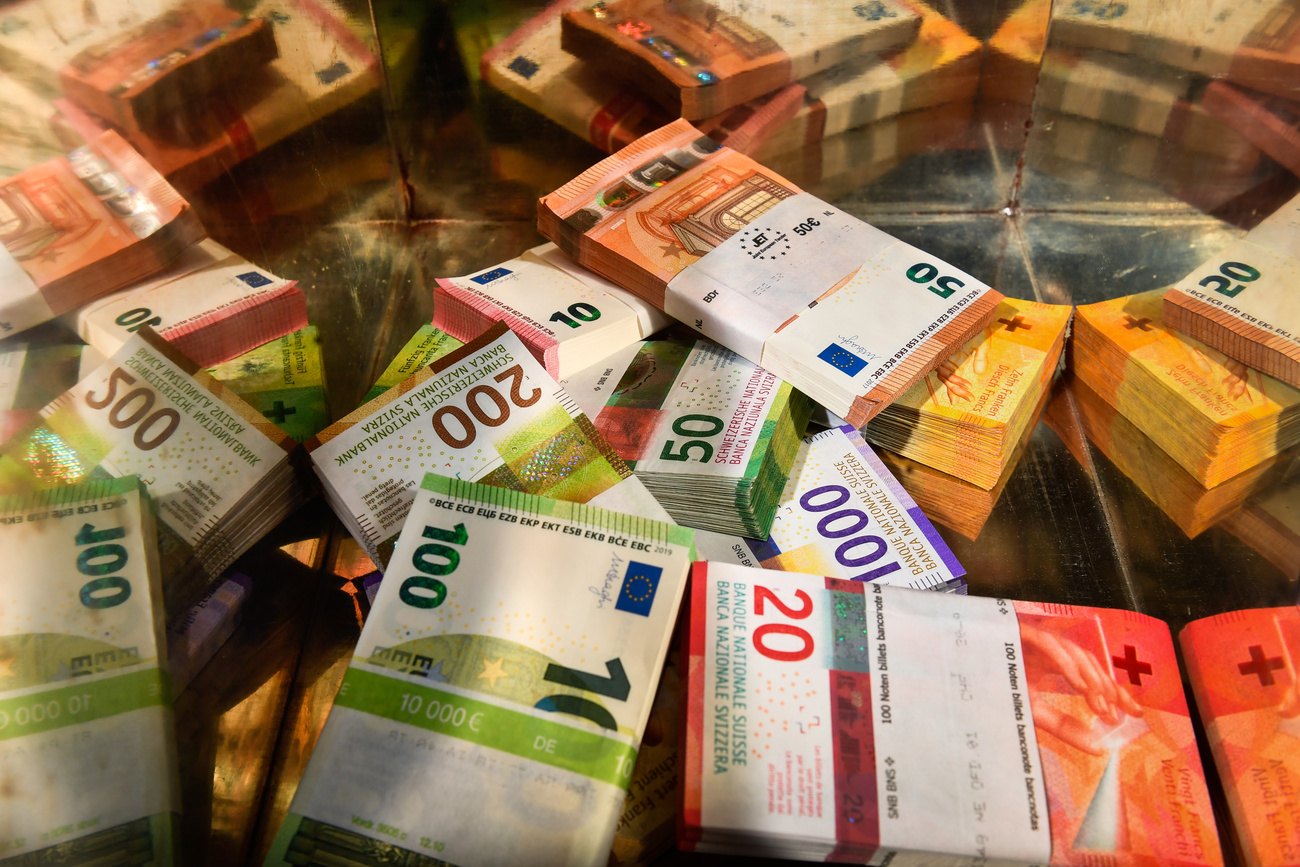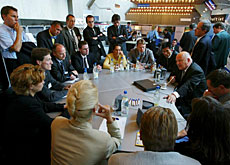Switzerland “should play leadership role in EU”

Switzerland should play a central role in Europe rather than stay on the fringes, an influential American economics guru has told swissinfo.
Best-selling author Jeremy Rifkin said Switzerland has the perfect blend of free market values and social conscience to set the future agenda.
He also thinks it is inevitable that Switzerland will become a full member of the European Union when the next generation reaches voting age.
Rifkin, one time advisor to former European Commission president Romano Prodi, spoke to swissinfo on the sidelines of the eighth Swiss Economic Forum held this week in Thun.
swissinfo: Why do you think Switzerland should become a full member of the EU?
JR: Eventually, Switzerland will have to join the European Union. If it is not a full member by 2050, then it will be an extremely marginalised country.
It would be better for Switzerland to join the EU now while it has a chance to take a lead and mould and direct. Despite being a small nation, Switzerland could still take a leadership role, not because of its economic model but because it is a country people respect.
If it waits to long then the EU will be fashioned without the influence of Switzerland and it will have to accept the rules that have been set.
swissinfo: Is this likely given the current opposition to such a move?
JR: The change will come with the younger generation. Young people in Switzerland that I talk to still feel Swiss, but they also feel increasingly European. They are travelling across Europe, they are dating across ethnic lines and they are going to school in different places.
They will be less afraid of broadening their horizons than the older generation.
swissinfo: What do you make of the current system of bilateral agreements?
JR: The Swiss want to take, take, take from Europe and not give anything back. They want a seamless partnership that is tantamount to membership without having the responsibilities of full members. At some point one has to question that as being too selfish.
swissinfo: What is Switzerland’s position in Europe?
JR: In Switzerland we see the best of the American model of individuality and the European sensibility of solidarity and communal engagement.
Since the Reformation, the Swiss have been wedded to the Calvinist tradition of individual accountability, productivity and entrepreneurial enterprise. On the other hand there is an older communal and paternalistic tradition that springs from the cantonal system.
Switzerland is both into individual opportunity and quality of life in which nobody gets left behind.
swissinfo: Does this make Switzerland a blueprint for Europe to follow?
JR: The Swiss model is not a blueprint, but it is right up there in terms of best practices. There are things that could be learned from the Swiss economic model, but also from the Dutch, German, Scandinavian and a whole smorgasboard of other models.
swissinfo-interview: Matthew Allen in Thun
Switzerland has opted not to become a full member of the European Union, instead signing a Free Trade Agreement in 1972 and two sets of bilateral accords in 1999 and 2004.
These last two agreements cover areas such as the free movement of workers between the EU and Switzerland, research, transport, the fight against fraud and agriculture.
This year the Federal Government will publish a report examining Switzerland’s long-term policy towards the EU.
Under discussion will be the options of continuing on the bilateral route, multilateral collaboration in terms of the European Economic Area and full accession to the EU.
Jeremy Rifkin has authored 17 books looking at the impact of technology and science on the workforce, society and the environment.
His works include: The European Dream and The Biotech Century.
He is also the president of the US-based Foundation on Economic Trends.
The National Journal magazine voted him as one of the 150 most influential people in shaping recent US government policy.

In compliance with the JTI standards
More: SWI swissinfo.ch certified by the Journalism Trust Initiative












You can find an overview of ongoing debates with our journalists here . Please join us!
If you want to start a conversation about a topic raised in this article or want to report factual errors, email us at english@swissinfo.ch.